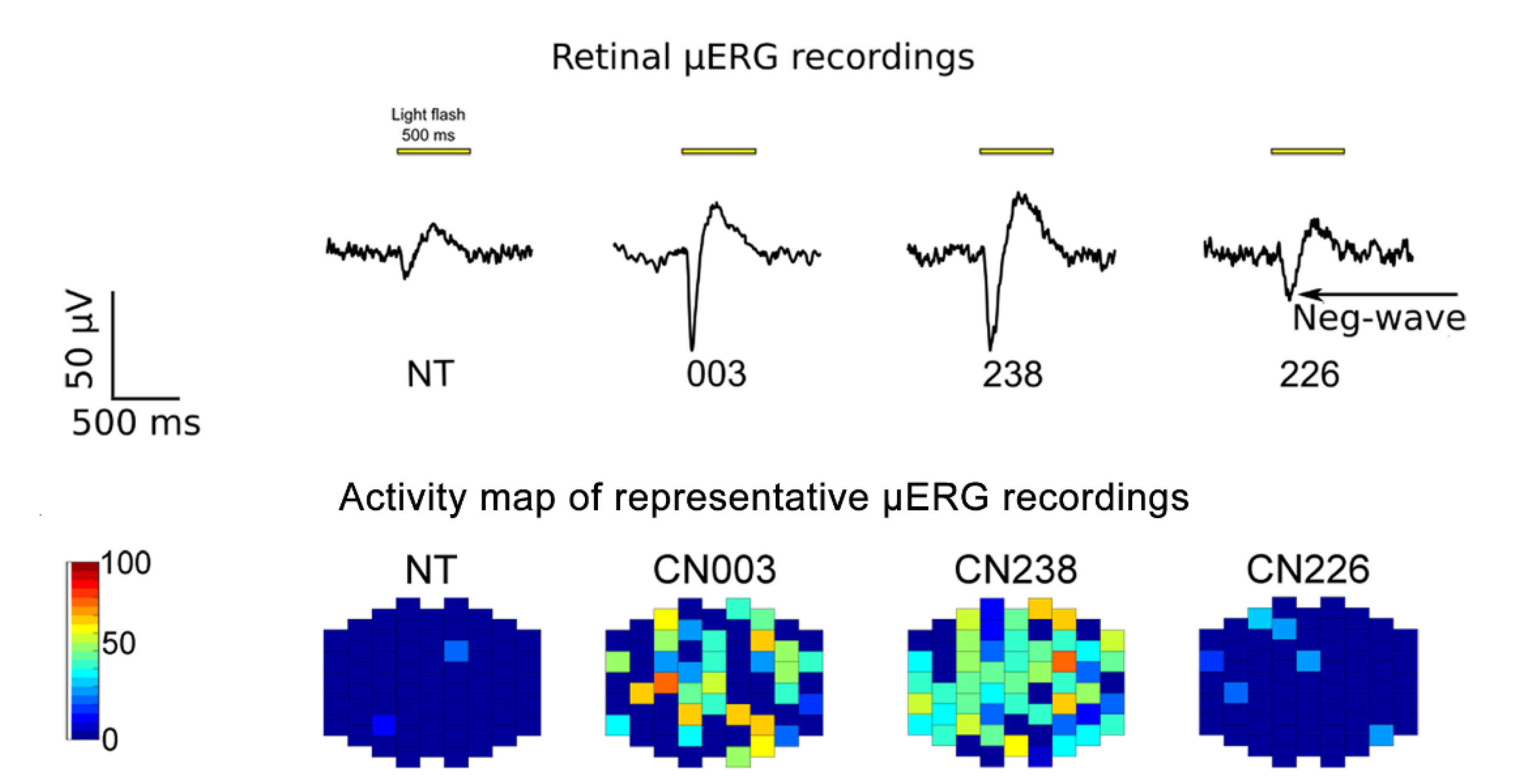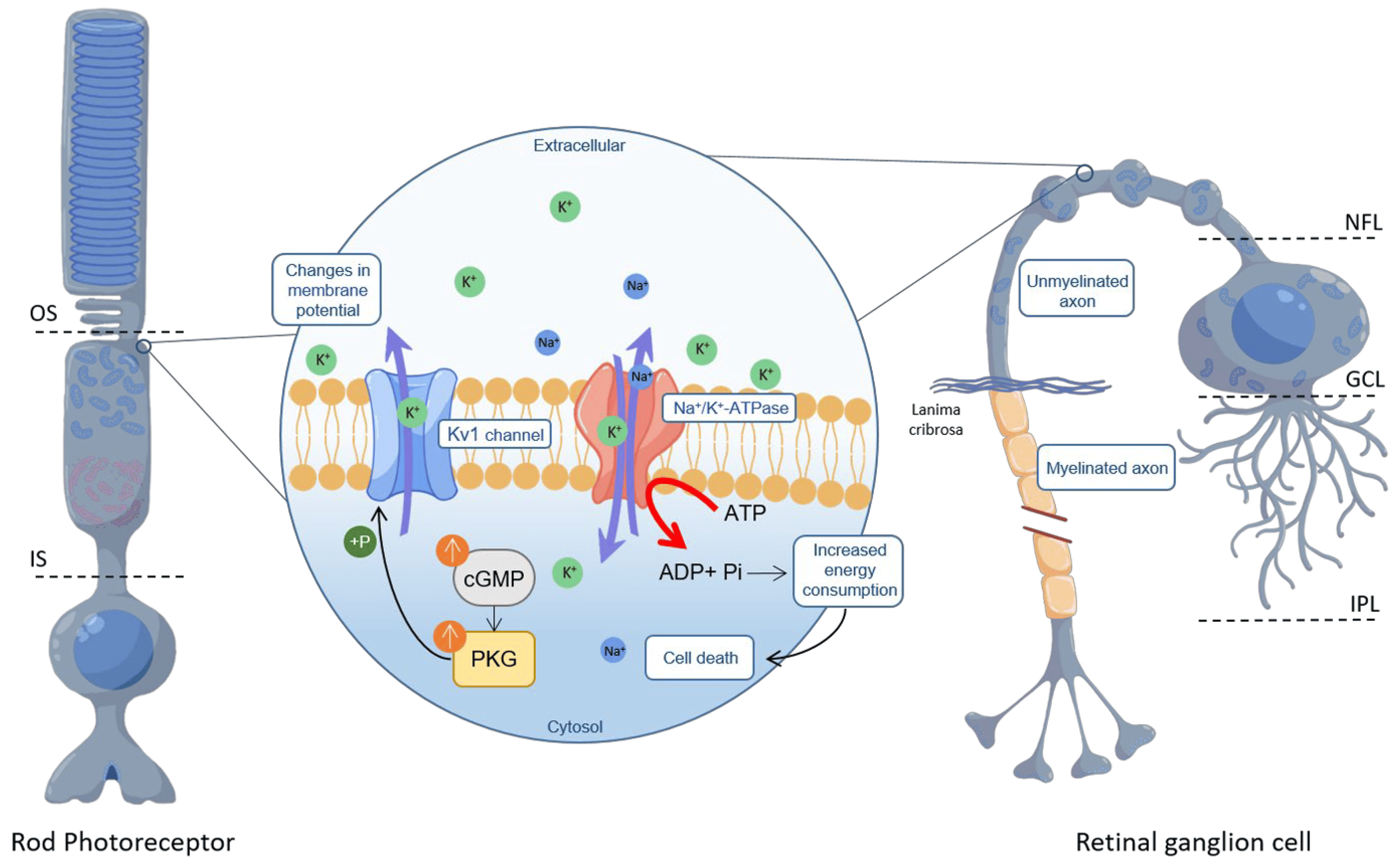Functional protection of photoreceptors and ganglion cells retinal degeneration with the PKG inhibitor CN238
The results of this study highlight the strong neuroprotective capacity of a PKG inhibitor - CN238 - for both photoreceptors and retinal ganglion cells.
Researchers (A. Tolone, F. Paquet-Durand and W. Haq) of the Institute for Ophthalmic Research together with further researchers from Germany and The Netherlands, could emphasise the strong neuroprotective capacity of PKG inhibitors for both photoreceptors and retinal ganglion cells, illustrating their broad potential for the treatment of retinal diseases and possibly neurodegenerative diseases in general.
This neuroprotective capacity was studied in hereditary retinal degeneration (RD), which is often associated with excessive cGMP signalling in photoreceptors.
In the latest study, in which the researchers have identified a novel compound, the PKG inhibitor CN238, demonstrates its remarkable protective effects on photoreceptor viability and function in vitro, as evidenced in two animal models of retinal degeneration. Furthermore, PKG inhibition has shown the ability to protect the viability and function of retinal ganglion cells against axotomy-induced retrograde degeneration in explanted retinas. These findings highlight the strong neuroprotective capacity of PKG inhibitors, positioning them as promising candidates for the treatment of various retinal diseases.
This work was made possible through collaboration with colleagues from various academic institutions and companies experts in the field.
Furthermore, these results highlight once again, that the retina as a neuronal tissue proves to be an excellent model to further our understanding of the mechanisms underlying degenerative diseases of the central nervous system.
Link to the original publication : https://www.mdpi.com/1422-0067/24/20/15277





